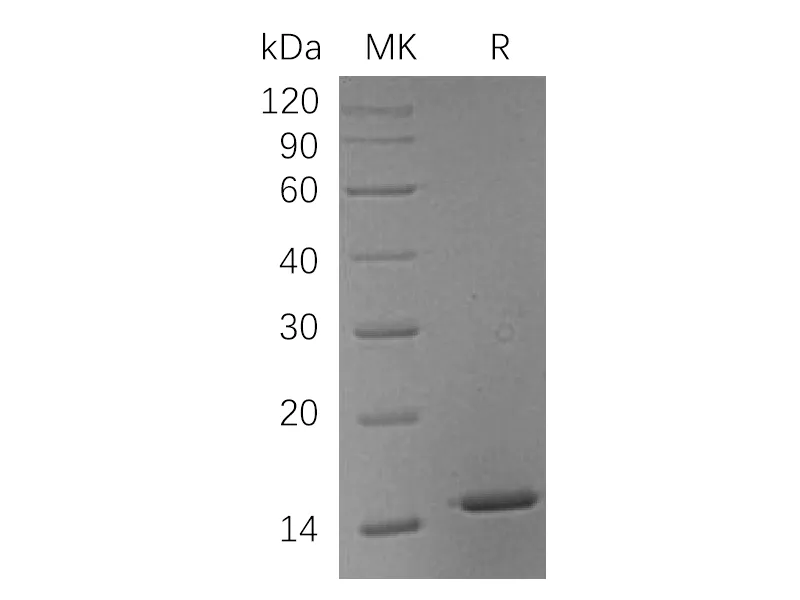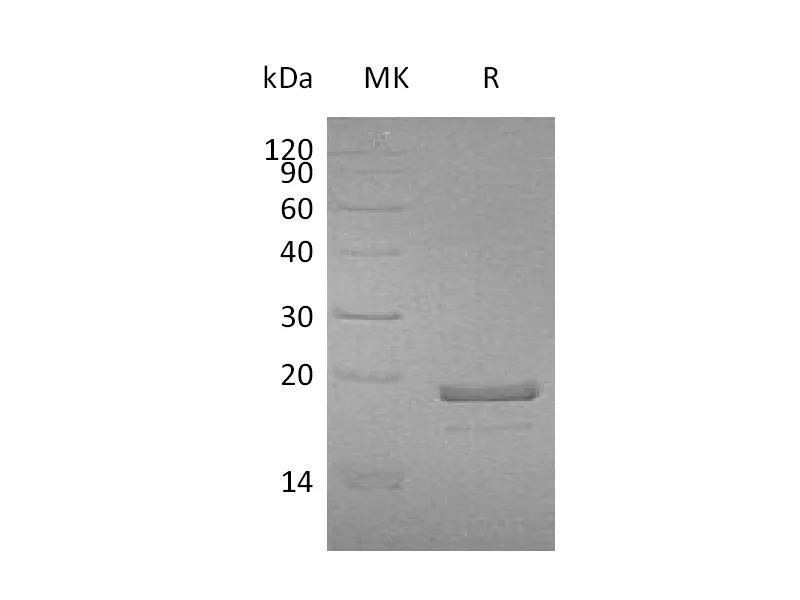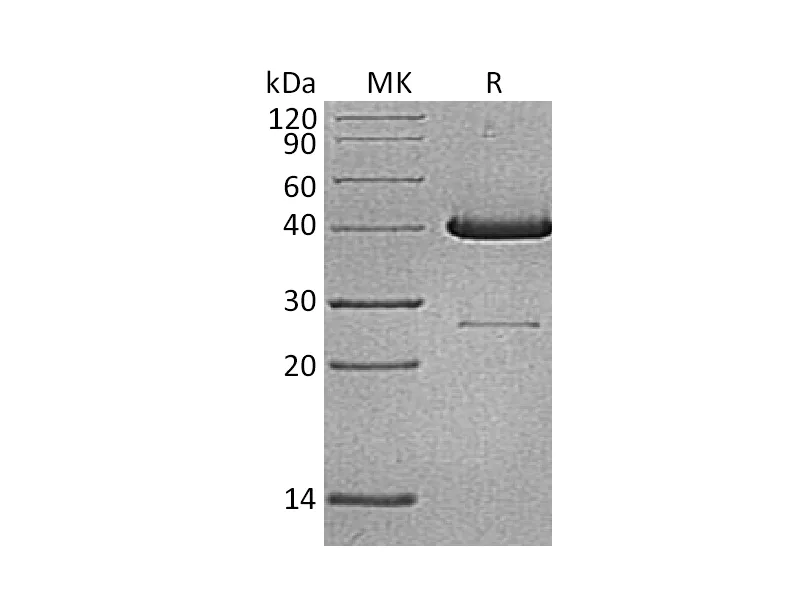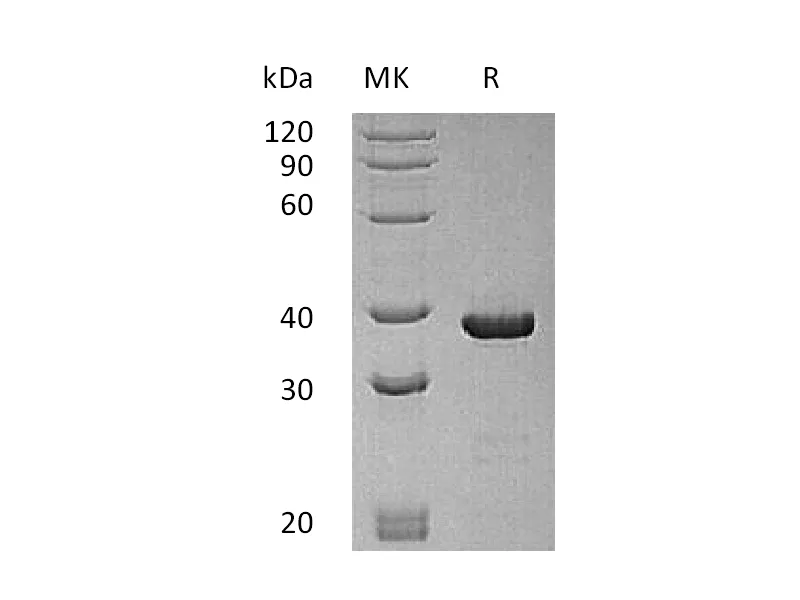| 产品名称 |
Recombinant Human CD69 (N-8His) |
| 英文名称 |
Early Activation Antigen CD69/CD69 |
| 纯度 |
Greater than 95% as determined by reducing SDS-PAGE |
| 内毒素 |
<1 EU/µg as determined by LAL test. |
| 蛋白构建 |
Recombinant Human Early Activation Antigen CD69 is produced by our Mammalian expression system and the target gene encoding Gly64-Lys199 is expressed with a 8His tag at the N-terminus. |
| Accession |
Q07108 |
| 表达宿主 |
Human Cells |
| 种属 |
Human |
| 预测分子量 |
16.9 KDa |
| 制剂 |
Lyophilized from a 0.2 μm filtered solution of PBS, pH 7.4. |
| 运输方式 |
The product is shipped at ambient temperature.Upon receipt, store it immediately at the temperature listed below. |
| 稳定性&储存 |
Store at ≤-70°C, stable for 6 months after receipt.Store at ≤-70°C, stable for 3 months under sterile conditions after opening. Please minimize freeze-thaw cycles. |
| 复溶 |
Always centrifuge tubes before opening.Do not mix by vortex or pipetting.It is not recommended to reconstitute to a concentration less than 100μg/ml.Dissolve the lyophilized protein in distilled water.Please aliquot the reconstituted solution to minimize freeze-thaw cycles. |
| 分子别名 |
| Early activation antigen CD69; Activation inducer molecule; AIM; BL-AC/P26; C-type lectin domain family 2 member C; EA1; Early T-cell activation antigen p60; GP32/28; Leukocyte surface antigen Leu-23; MLR-3; CD69; CLEC2C |
| 背景介绍 |
| Human Early Activation Antigen CD69 (CD69) is a type 2 transmembrane glycoprotein in the C-type lectin family. It plays roles in immune cell trafficking, inflammation, T cell memory, and humoral immune responses. CD69 is expressed on the cell surface as an approximately 60 kDa disulfide-linked homodimer. It is found on CD4+ T cells, CD8+ T cells, NK cells, NKT cells, gamma delta cells dendritic cells (DC) and is up-regulated on activated T cells and DC. Ligation of CD69 on DC induces IL2 production, leading to T cell proliferation. CD69 is important for the homing of CD4+ T cells and plasmablasts to the bone marrow but inhibits the migration of dermal DC to draining lymph nodes. It supports the expression of multiple chemokines and chemokine receptors but suppresses the expression of others. It associates with and negatively regulates S1P1 expression on DC and CD4+ T cells, resulting in a decreased chemotactic response to S1P. The direct interaction of CD69 with Galectin-1 contributes to the ability of CD69 to limit Th17 mediated inflamamtion while supporting the differentiation of regulatory T cells. |
注意事项
本司产品仅用于科研,不用于临床诊断和治疗




